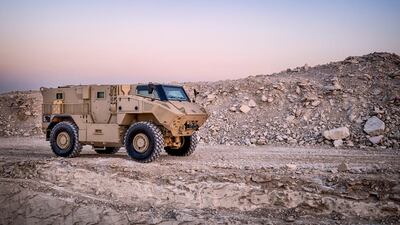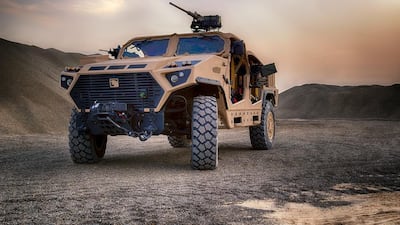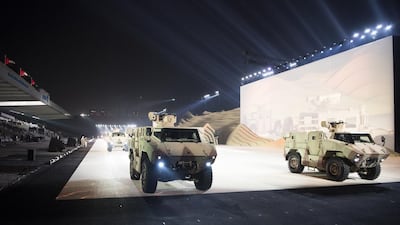The UAE Armed Forces is now using two of the most advanced military vehicles, which have been both designed and manufactured in the Emirates.
Nimr Automotive, a subsidiary of Emirates Defence Industries Company and which has a manufacturing facility in Abu Dhabi, has introduced the N35 and the Ajban-class Special Operations Vehicle (SOV). Both were on display at the UAE’s National Day parade.
The N35 is a mine-protected multi-purpose fighting vehicle in both 4x4 and 6x6 configurations. It “provides the Armed Forces with a combination of firepower, survivability and mobility to meet modern, asymmetric operational threats”, according to Nimr.
It added that the cabin is capable of providing high levels of protection against mine, IED and ballistic threats.
The Ajban SOV, meanwhile, is “a light, long-range reconnaissance vehicle that can be transported by helicopter for easy insertion into any environment for self-sustained missions lasting up to two weeks. The vehicle is designed to be highly mobile in all terrains, featuring a high payload capacity to transport all necessary crew equipment and features a roof-mounted gun for self-defence.”
Fahad Saif Harhara, Nimr chief executive, highlighted the role of local talent in bringing the vehicles into service for the Armed Forces.
“An integral element of NIMR’s mission is to educate and empower the next generation of UAE nationals so that they can contribute to the country’s growing industrial sector,” he said.
Founded in 2004, Nimr, or “tiger” in Arabic, was established by Bin Jaber Group, before it was 60 per cent acquired by Tawazun Holding in 2010.
It became part of Emirates Defence Industries Company, which incorporates 16 of the UAE’s defence industry entities under one umbrella, in 2014.
Earlier this year Nimr said that it was increasing its vehicle production to eight per day, from one in 2014.
ioxborrow@thenational.ae
Follow The National's Business section on Twitter



